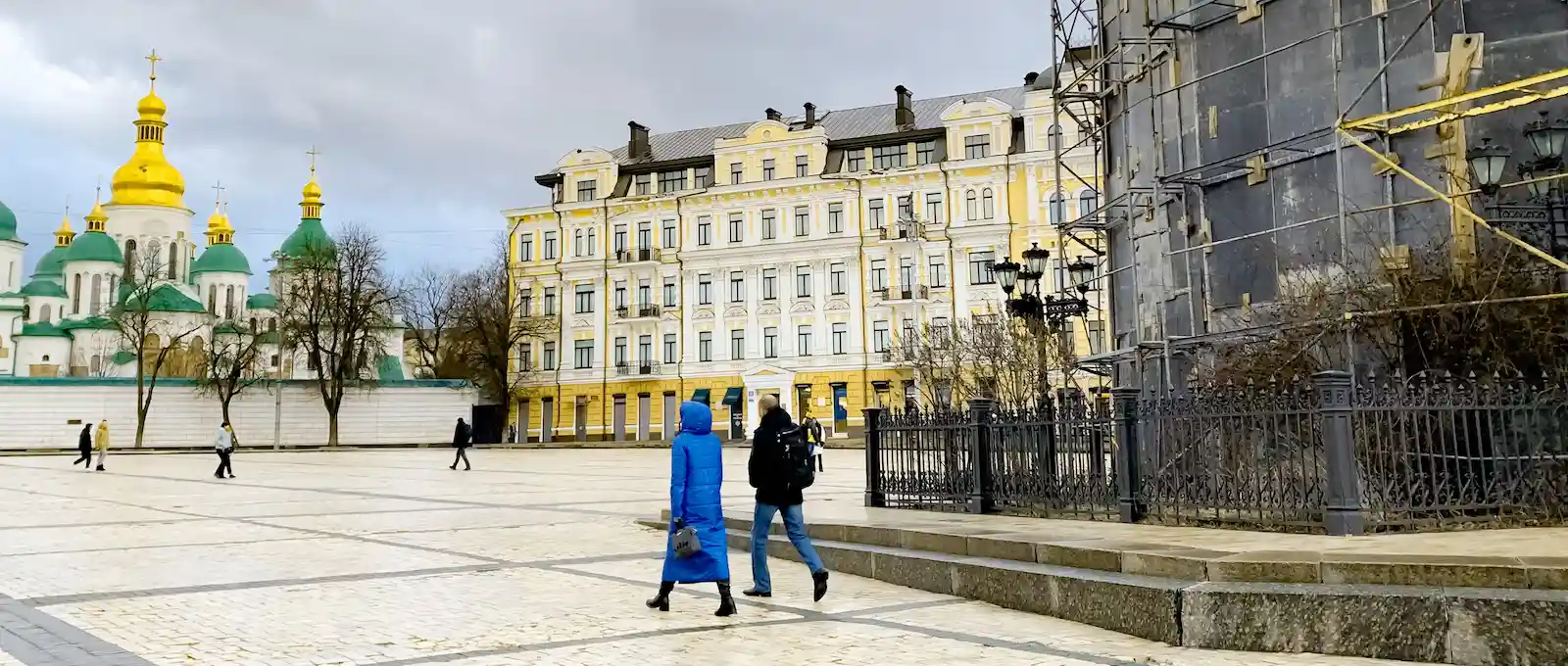Content NoteThis story includes firsthand accounts of conflict.
As part of the Concern emergency team, I have visited 5 major border crossings in Poland, Slovakia, and Hungary in the past week, speaking to dozens of people as they make the bewildering transition to their new status as refugees. (Incidentally, “refugee” is actually a formal term as defined by a 1951 UN convention, so those coming now are technically asylum seekers or displaced persons.)
There are common threads to each story. Surprise and shock that the predictions of war were accurate, feelings of confliction about the decision to leave, the trauma of evacuation, and fear for those who have been left behind.
Hungary: “We thought it would be over quickly, but it just got worse”
We met Ashutash and his extended family at Zahony station, as they crossed the border into Hungary after a marathon 48-hour train journey from the Donbas region in the east of Ukraine.
“Bombs were dropping all around us for four days. We thought it would be over quickly, but it just got worse. We had no intention of leaving at all, but I have a 2-year-old daughter and a wife and her elderly parents and it was just too dangerous to stay.”
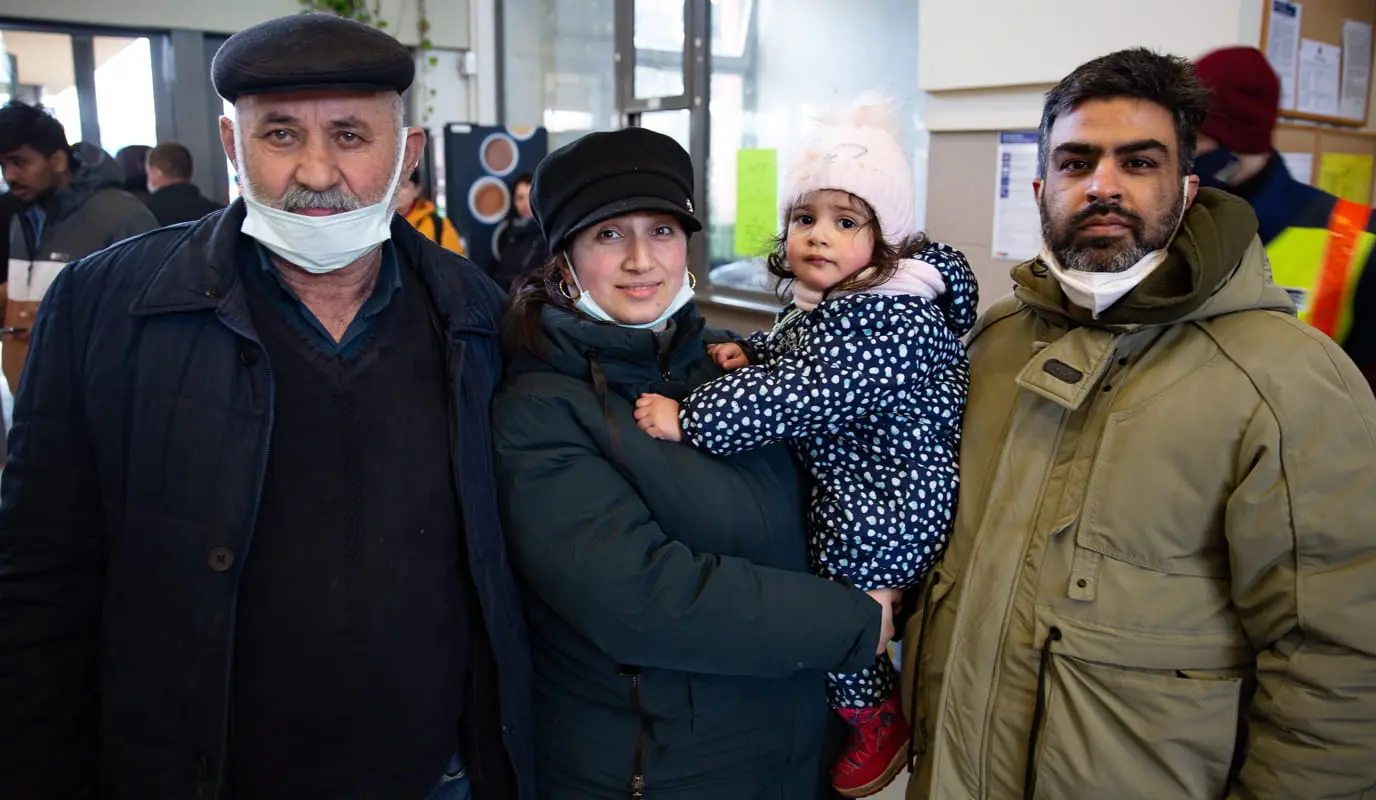
He tells us that the family saw things no one should ever see — gruesome scenes of brutal death and destruction. His intention was to take another train to Budapest and then figure out a plan for what to do next.
From what we have seen, the majority of people who have been crossing from Ukraine up to now are those who have the means to travel and who have family or friends in neighboring countries or further afield.
Poland: “I had to pack everything I own into a backpack and leave my whole life behind me”
In Poland we met 31-year-old Alina, who told us of her own four-day journey from Kyiv to meet up with a friend who had traveled from Portugal to collect her at the border.
“I spent the last seven years saving all my money to buy my own apartment and then I had to pack everything I own into a backpack and leave my whole life in Ukraine behind me. I was on the 23rd floor and it just wasn’t safe. The TV tower in Kyiv you saw on television being blown up — that was the complex where I worked.”
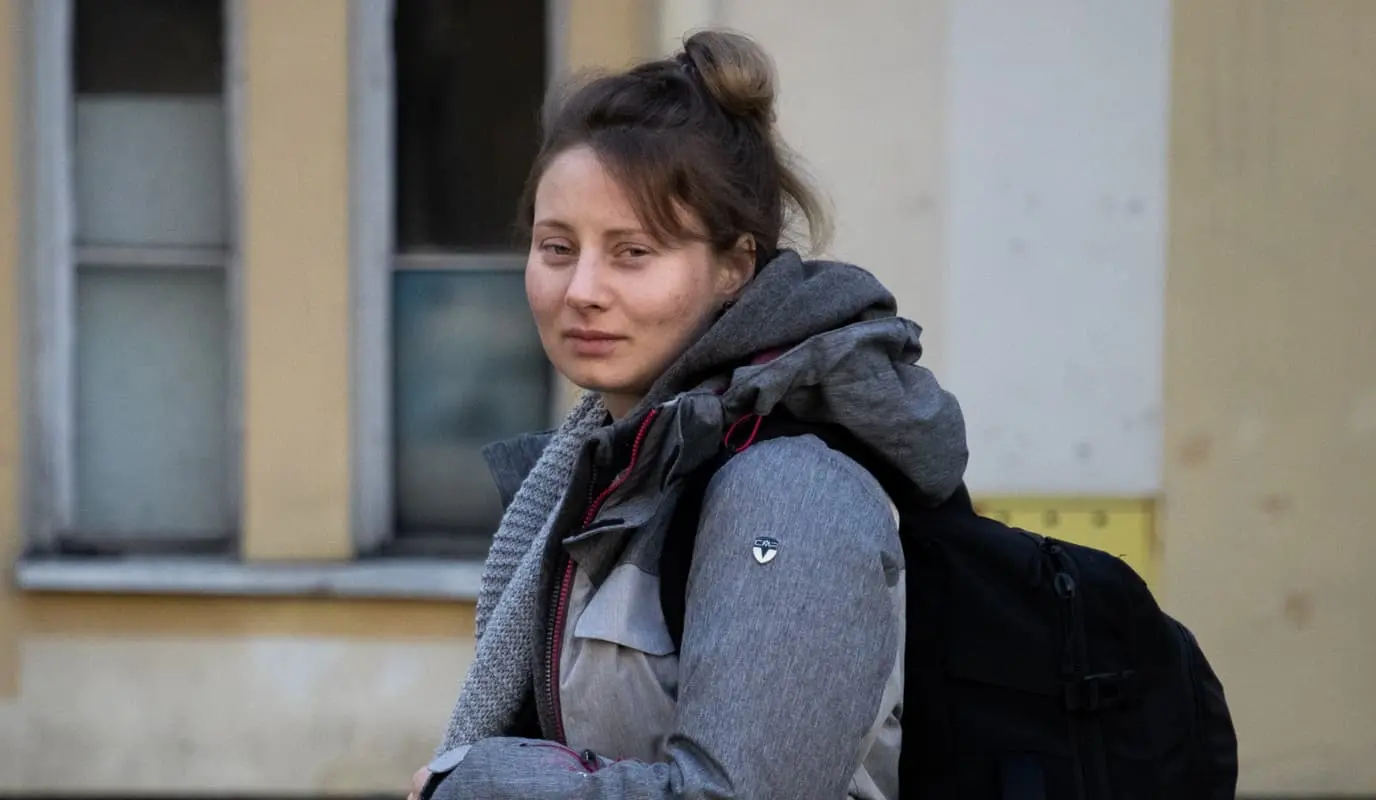
Ironically, Alina had arrived back in Ukraine from traveling abroad just five hours before the first fighting broke out on February 25th.
Slovakia: One painful goodbye that stands for thousands
This weekend, at a tiny frontier post in the hills of Slovakia, we met a woman with two children who had just crossed over from Ukraine. In a painfully poignant scene that has been replicated tens of thousands of times in the past week, she had just said goodbye to her husband, who had accompanied the family on their journey to the border. He was going back to take part in the fight. Their kids, packed into the family car among salvaged possessions, did not know when — or even if — they would see their father again. It’s honestly heartbreaking to even think about.
What is it like on the Ukrainian borders?
For now, the situation for those fleeing Ukraine is to some extent under control. Local civic organizations have been assembling donated goods and providing food, warm clothing, basic necessities, and even SIM cards to those who need them. A fleet of buses, vans, and cars, mostly organized by volunteers, has been bringing the displaced to their next destinations.
We have met people going to almost every country in Europe. Jan Krejcir was waiting at the border in Vyene Nemecke for his Ukrainian friend’s three teenage children as they came across on Thursday. He had driven over 800 kilometers (approximately 500 miles) from the Czech Republic and was bringing them home that night.
“We will look after them as long as we’re needed,” he told me.
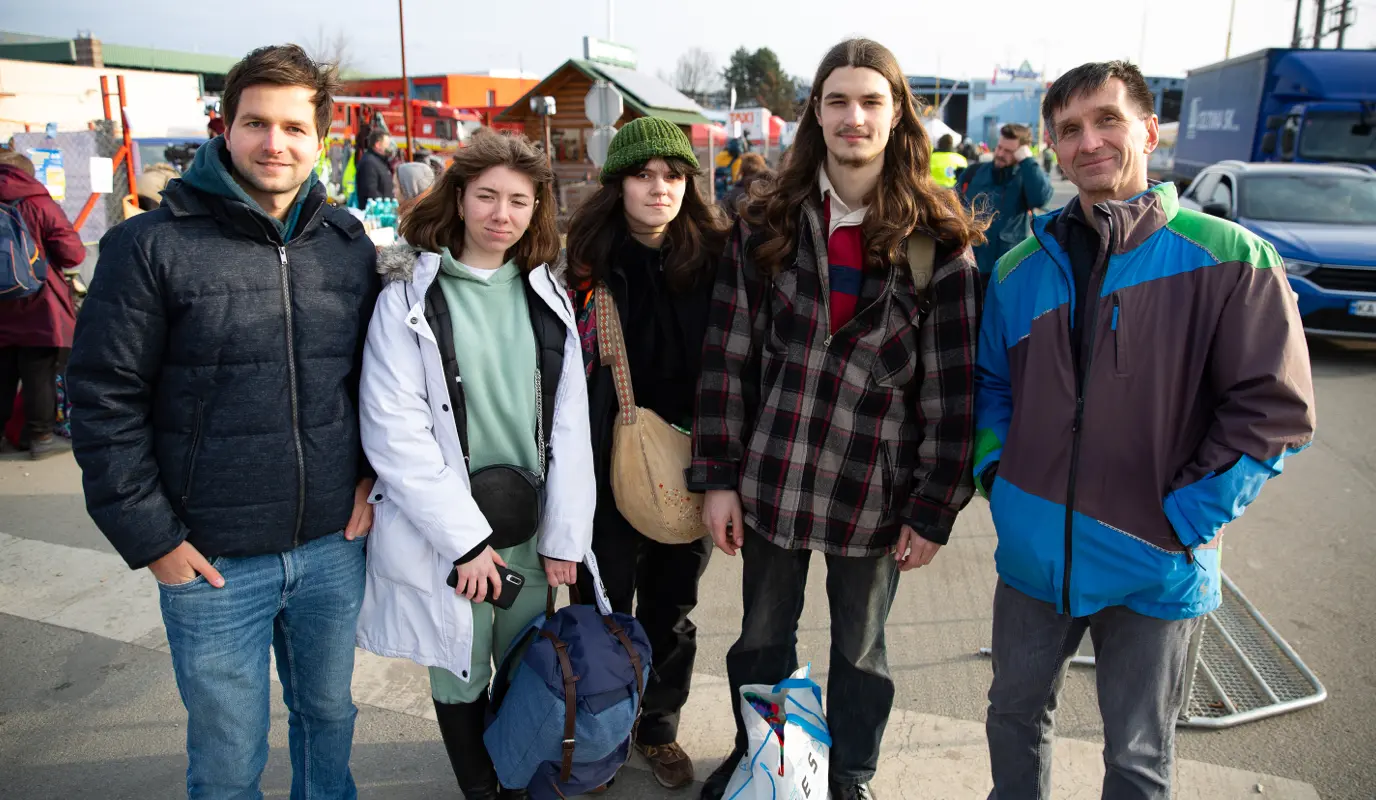
The big concern from a humanitarian perspective is what happens next. The United Nations is predicting as many as four million people will try to leave Ukraine in the coming weeks if the conflict continues. Many of them will be in a very different situation to those who went before, without reserves of cash or a network of friends and family to support them. The efforts of volunteers and host communities will come under strain, and support systems will be severely tested. It’s unlikely, for now at least, that the type of large refugee camps we have seen in other displacement crises will start to appear, but this is a crucial time for making preparations.
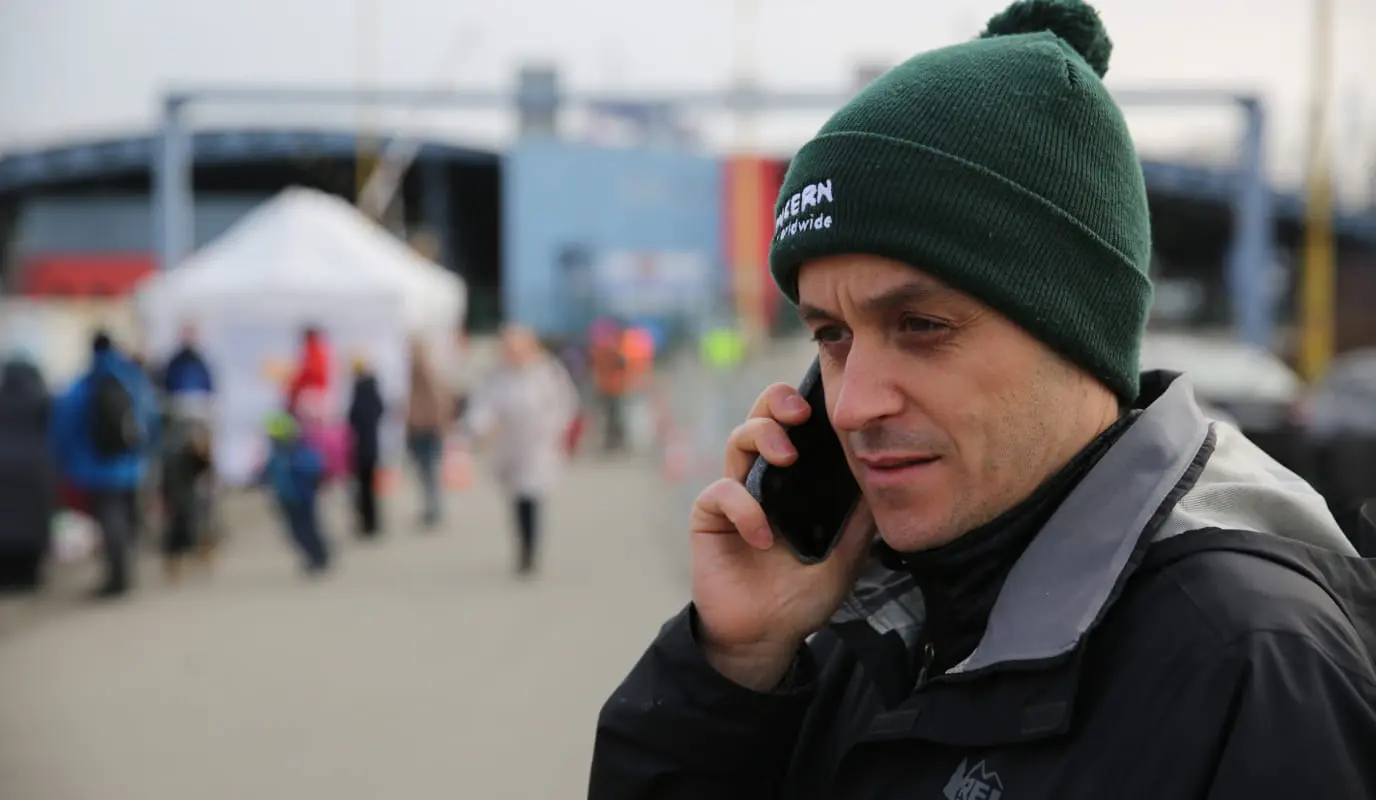
The crisis in Ukraine: Concern's response
The Concern team here has been assessing the potential needs, making connections with partner organizations, and putting the systems in place to build an effective response to the growing crisis in Ukraine. What that may look like remains to be seen, but increasingly the most effective way to support people in need is to simply give them cash to pay for what they need. That is especially true in the context of western Europe, with fully functional markets and an array of services. The level of trauma experienced by people in a conflict setting can be hugely damaging, and psychosocial support is important. Also, providing social protection for vulnerable people is crucial — remember, almost all of those leaving Ukraine at present are women and children.
And then there are those who are left behind. Concern’s partner, People In Need, has emergency operations already underway inside Ukraine itself, and we stand ready to support people in need. Delivering aid in a conflict zone is incredibly perilous and very complex. It’s also expensive. The generosity of both American people and foreign aid services have once again proven to be quite extraordinary, leaving Concern and other organizations well-placed to respond effectively.
It’s our earnest desire that none of this will be necessary. The best thing that could possibly happen is a cessation of hostilities, allowing the displaced a chance to return home and rebuild their lives. There are many other humanitarian crises that need our attention — Afghanistan and the Horn of Africa principal among them — but we must be prepared for the worst in Ukraine, in the hope that those plans won’t be needed.


